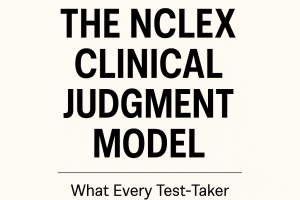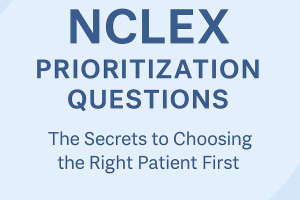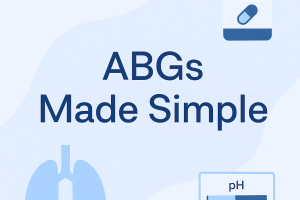GROUP THERAPY AND OTHER PSYCHOLOGICAL INTERVENTIONS

Introduction
Group therapy and psychological interventions have become essential components of mental health care, providing patients with effective tools for healing and personal growth. Whether addressing anxiety, depression, substance use, or trauma, these interventions aim to foster resilience, improve coping mechanisms, and create supportive environments.
For nursing professionals and NCLEX candidates, understanding the principles, benefits, and applications of these therapies is crucial for ensuring comprehensive patient care. This blog will explore group therapy and other psychological interventions, emphasizing their impact on mental health outcomes and strategies for success on the NCLEX exam.
1. What Is Group Therapy?
Group therapy is a form of psychotherapy where one or more therapists lead a small group of individuals to discuss and work through shared challenges. This approach is often used to address issues such as:
• Anxiety disorders
• Depression
• Post-traumatic stress disorder (PTSD)
• Substance use disorders
• Grief and loss
In a group setting, patients benefit from shared experiences, mutual support, and guided discussions facilitated by a trained therapist.
Types of Group Therapy:
• Psychoeducational Groups: Focus on teaching skills and knowledge related to specific mental health conditions (e.g., stress management or relapse prevention).
• Process-Oriented Groups: Explore emotions, thoughts, and behaviors to promote self-awareness and interpersonal growth.
• Support Groups: Offer emotional support for individuals facing similar challenges (e.g., grief groups or addiction recovery groups).
• Cognitive-Behavioral Groups: Apply CBT techniques to modify unhelpful thought patterns and behaviors collectively.
2. Benefits of Group Therapy
Group therapy offers unique advantages over individual therapy, including:
• Sense of Belonging: Patients realize they are not alone in their struggles, fostering a sense of connection and validation.
• Shared Learning: Members learn from each other’s experiences and coping strategies.
• Cost-Effectiveness: Group therapy is often more affordable than individual sessions.
• Improved Social Skills: Participants practice communication and interpersonal skills in a safe environment.
3. Other Common Psychological Interventions
Cognitive-Behavioral Therapy (CBT):
CBT is one of the most evidence-based approaches to treating mental health conditions. It helps individuals identify and challenge negative thought patterns, replacing them with healthier alternatives.
Dialectical Behavior Therapy (DBT):
DBT is particularly effective for patients with borderline personality disorder or those struggling with emotional regulation. It focuses on mindfulness, distress tolerance, and interpersonal effectiveness.
Family Therapy:
This approach involves family members in the therapeutic process, addressing dynamics that may contribute to a patient’s mental health challenges.
Eye Movement Desensitization and Reprocessing (EMDR):
EMDR is widely used to treat PTSD by helping patients process traumatic memories through guided eye movements.
Motivational Interviewing (MI):
MI helps individuals resolve ambivalence and build motivation to make positive behavioral changes, particularly in addiction recovery.
4. Nursing Interventions in Group Therapy and Psychological Care
Nurses play a key role in facilitating and supporting psychological interventions. Essential nursing interventions include:
• Creating a Safe Space: Ensure a supportive and non-judgmental environment for patients.
• Monitoring Group Dynamics: Identify signs of distress or conflict and address them appropriately.
• Encouraging Participation: Gently motivate quieter patients to share their thoughts.
• Educating Patients: Teach coping strategies, relaxation techniques, and the importance of self-care.
• Referring Patients: Recognize when patients may benefit from specialized therapy, such as CBT or EMDR.
5. NCLEX Tips for Psychological Interventions
• Be familiar with the types of group therapy and their indications.
• Understand key therapeutic communication techniques, such as active listening and empathy.
• Prioritize safety for patients exhibiting signs of distress during group sessions.
• Know how to evaluate the effectiveness of psychological interventions.
NCLEX-Style Questions and Rationales
Question 1:
A nurse is caring for a patient attending group therapy for substance use disorder. Which statement by the patient indicates the therapy is effective?
A. “I feel like I’m the only one struggling with addiction.”
B. “I don’t think I need this group; I can handle things on my own.”
C. “Hearing others share their experiences gives me hope.”
D. “The group sessions don’t seem to help at all.”
Answer: C. “Hearing others share their experiences gives me hope.”
Rationale: Group therapy is effective when participants feel supported and gain insight from shared experiences.
Question 2:
Which patient would benefit most from dialectical behavior therapy (DBT)?
A. A patient with mild anxiety and insomnia
B. A patient with borderline personality disorder and self-harming behaviors
C. A patient recovering from a traumatic brain injury
D. A patient with moderate depression and no history of trauma
Answer: B. A patient with borderline personality disorder and self-harming behaviors
Rationale: DBT is specifically designed for individuals with borderline personality disorder and focuses on emotional regulation and distress tolerance.
Question 3:
The nurse is facilitating a psychoeducational group on stress management. Which nursing intervention is most appropriate during the session?
A. Allowing one patient to dominate the discussion
B. Providing inaccurate information to encourage participation
C. Teaching relaxation techniques, such as deep breathing exercises
D. Focusing on past traumatic events without therapeutic guidance
Answer: C. Teaching relaxation techniques, such as deep breathing exercises
Rationale: Psychoeducational groups aim to teach skills and strategies to manage specific challenges, such as stress.
Question 4:
A patient in a support group for grief shares feelings of guilt over a loved one’s death. What is the most therapeutic response by the nurse facilitating the group?
A. “You shouldn’t feel guilty; it’s not your fault.”
B. “Can anyone else in the group relate to these feelings?”
C. “Let’s move on to the next topic of discussion.”
D. “Why do you feel that way?”
Answer: B. “Can anyone else in the group relate to these feelings?”
Rationale: This response encourages group participation and mutual support while validating the patient’s emotions.
Question 5:
A nurse is monitoring a patient receiving cognitive-behavioral therapy for depression. Which outcome indicates the therapy is successful?
A. The patient reports reduced feelings of guilt and hopelessness.
B. The patient avoids discussing their emotions.
C. The patient continues to isolate themselves socially.
D. The patient stops attending therapy sessions.
Answer: A. The patient reports reduced feelings of guilt and hopelessness.
Rationale: CBT aims to help patients challenge negative thoughts and develop healthier emotional responses, resulting in improved mental health.
Conclusion
Group therapy and other psychological interventions are powerful tools in mental health care, offering patients the opportunity to heal, grow, and build resilience. Nurses play an integral role in facilitating these therapies, ensuring safety, and empowering patients to take control of their mental well-being.
For NCLEX success, focus on understanding the principles of these interventions, therapeutic communication, and patient-centered care. With the right knowledge and strategies, you can provide compassionate care and help patients achieve meaningful recovery.






